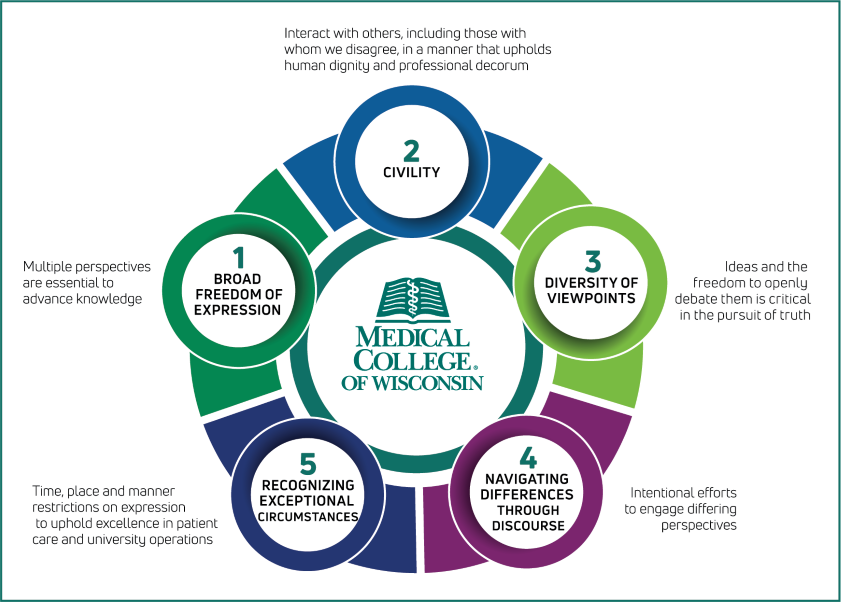Medical College of Wisconsin Principles of Freedom of Expression
MCW Freedom of Expression Principles
Freedom of expression is essential to the scientific process and the pursuit of truth. These endeavors are central to the fourfold missions of the Medical College of Wisconsin, a health sciences university, and require exploration, observation, discovery, and critical assessment.
With the following principles, the Medical College of Wisconsin commits to a climate of free and open inquiry and debate, one in which both new and existing ideas are examined and discussed from varying perspectives.
Such commitment requires continual and iterative effort to maintain a culture in which all members of the community feel free to question ideas, voice a diversity of personal opinions, and engage in discourse. To achieve such a culture, members of the MCW community shall exercise our values of integrity, curiosity, caring, collaboration, inclusivity and respect in expressing their individual views.


